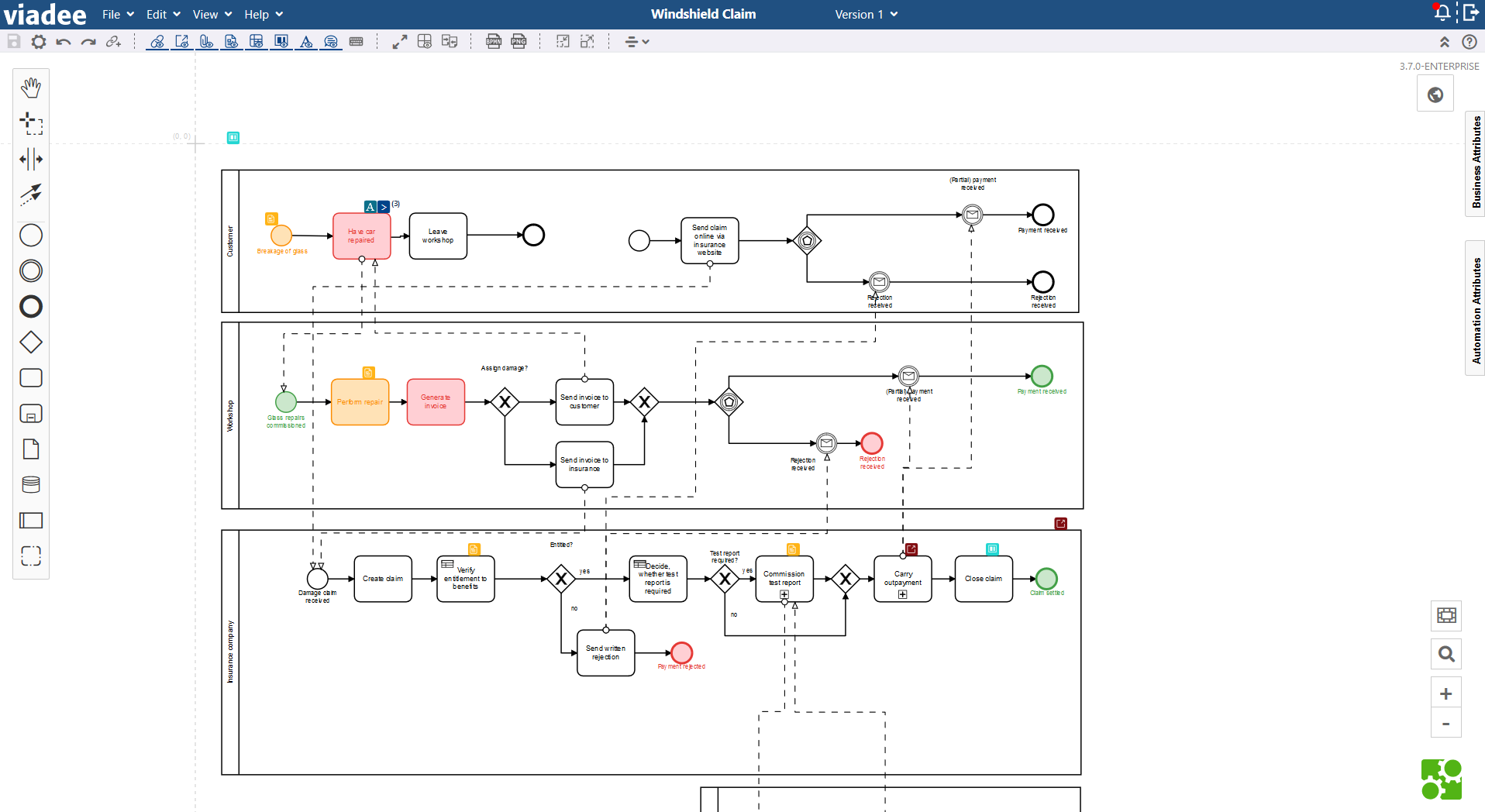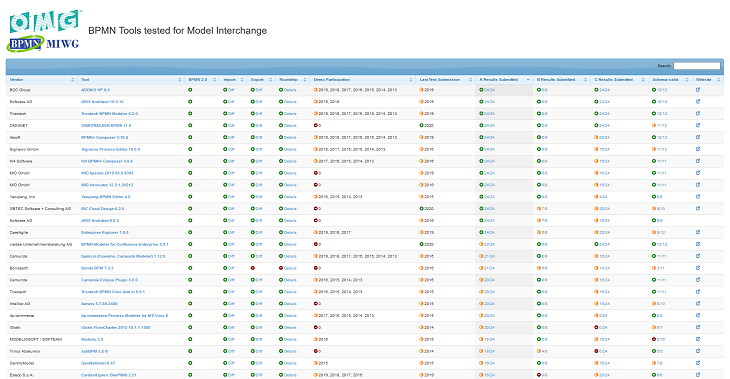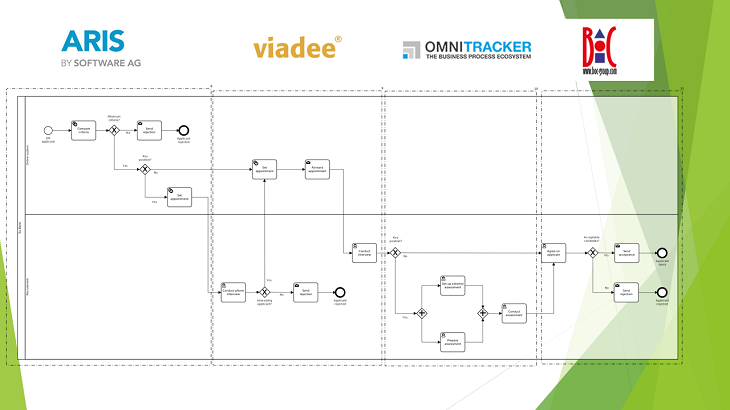The BPMN 2.0 standard is implemented by various tools. In the Model Interchange Working Group (MIWG) live tech demo at the Object Management Group technical meeting several tools - including our BPMN Modeler for Confluence Enterprise – demonstrated their ability to interoperate based on the standard.
One Standard – many tools
Business Process Model and Notation is incredibly useful as it standardizes the notation of processes in a manner that can be understood by all involved parties. Its use allows for an easy communication of processes between different groups, departments or whole companies without information getting lost along the way due to different ideas on how processes should be recorded or written down. However, these different players might very well use completely different tooling from one another to work with the process models, as there is a plethora of such tools available, all claiming to implement the BPMN 2.0 standard. Furthermore, some people might use more than one tool at the same time, due to historical reasons, personal preference, or if these tools serve different purposes: For example, one tool might be well suited for working on technical aspects of BPMN models with the goal of workflow automation, while working on business aspects of the very same models might be more convenient with another tool, e.g. to document your business processes in your Confluence company wiki using the BPMN Modeler for Confluence Enterprise.
Whenever this happens, interoperability of BPMN tools is of vital importance: In an ideal world we would be able to model a process in any tool of choice, export it, import it into another tool, modify or expand the model, come back to it at a later point in time, resume modelling with yet another tool, and so on and so on and so on. However, we do live in an at least somewhat less than ideal world and therefore interoperability or compatibility between different tools implementing the BPMN 2.0 standard is a promise not yet fully satisfied.
The Model Interchange Working Group
To fulfil the promise of full interoperability between different BPMN tools is the goal of the Model Interchange Working Group (MIWG), a working body within the Object Management Group (OMG), the consortium maintaining the BPMN 2.0 standard.
The MIWG is a collaboration of several vendors of BPMN tools and mainly does two things as part of its mission: Firstly, the group maintains a webpage with BPMN compatibility tests and an overview containing the results of said tests. The tests are run by the vendors themselves or any person interested in BPMN interoperability, and their results can be used by anyone to evaluate how well these tools implement the standard.
The 2020 MIWG Demo at the OMG Technical Meeting
Secondly, the MIWG conducts yearly live demonstrations on the current state of affairs of BPMN tool interoperability at the OMG Technical Meeting. The last of these took place on the 22nd of June, in the same week as the BPMN 2.0 standard celebrated its 10th anniversary.
In this year’s tech demo, eleven different vendors of BPMN tools participated together to showcase the current level of interoperability between their products, for the very first time also including our BPMN Modeler for Confluence Enterprise.
The demonstration was a small-scale version of the import-export routine described above and can essentially be described as a BPMN version of Chinese Whispers: An agreed upon diagram was modelled bit by bit by several vendors, one after the other adding their part to what the previous vendor had modelled and then exporting the result to be picked up by the next one.
To speed things up this was done in three parallel tracks each involving three or four different tools. In the end, we had three nice looking BPMN diagrams that had just been modelled live in front of about 300 digitally attending audience members using eleven different tools in total, showing that the participating tools are pretty compatible indeed!
Clearly, this success was not without work, and in the weeks and months leading up to the demonstration we worked hard to find problems with the tools’ different interpretation of the standard. Numerous smaller and bigger problems between tools were fixed in the run up to the demo, improving the standard compliance of all tools involved. For example, we ourselves noticed that an open source package we use to parse BPMN XML files threw some warning messages despite the imported BPMN being perfectly fine. Our pull request to fix this issue has since been merged and therefore the preparation for the tech demo directly improved the open source bpmn-js package and with it all tools that use it. Our ongoing support for BPMN model interchange is also documented by the great results achieved by the BPMN Modeler for Confluence Enterprise in the MIWG interoperability tests.
Clearly, interoperability between BPMN tools is an important issue which once fully implemented would allow different parties to cooperate effectively by being able to seamlessly exchange process models despite using different tooling. The success so far has been great and is growing with every year, as documented by the MIWG tech demos. Already today different tools can successfully be used side by side to take advantage of their specific use cases and ecosystems, such as for example being extremely well-suited for process documentation in your Confluence company wiki, as is our BPMN Modeler for Confluence Enterprise!
Our BPMN Modeler is available on the Atlassian Marketplace and can be tested for free.
Back to blog overview








